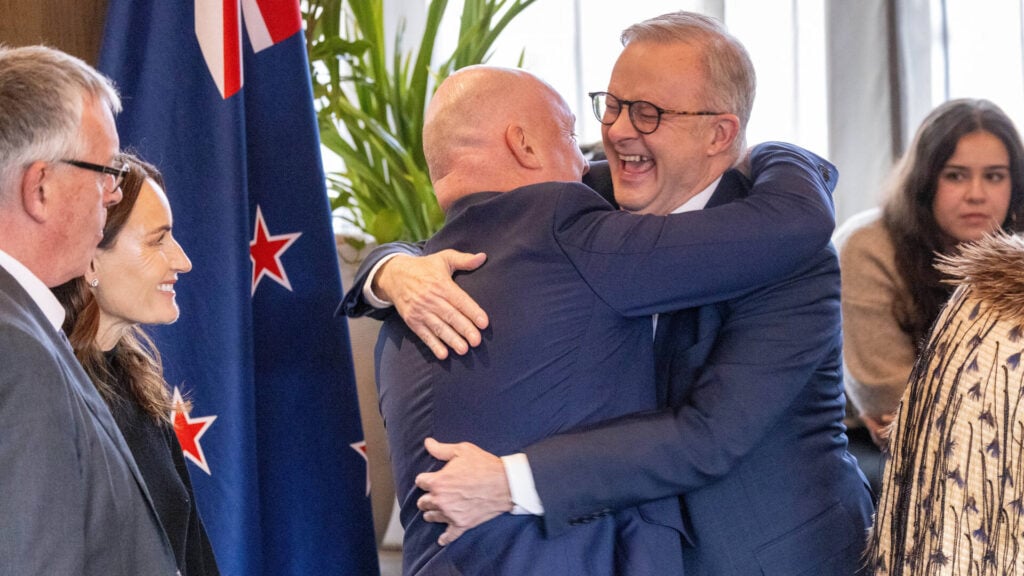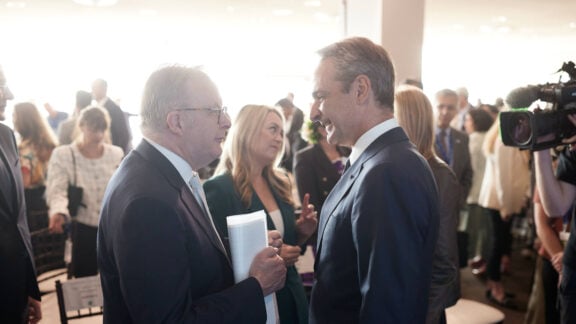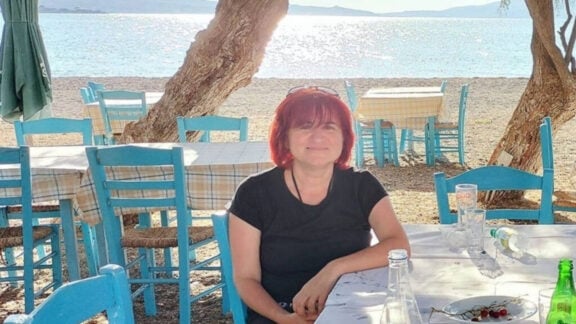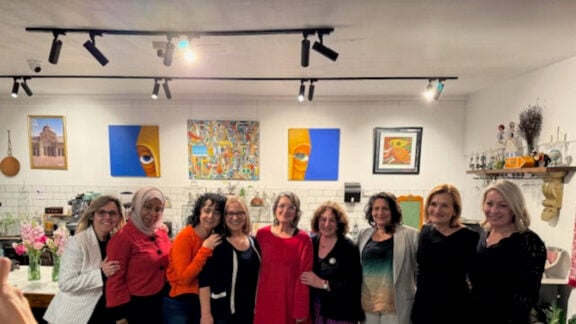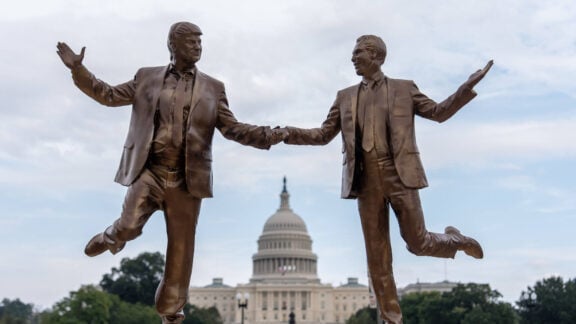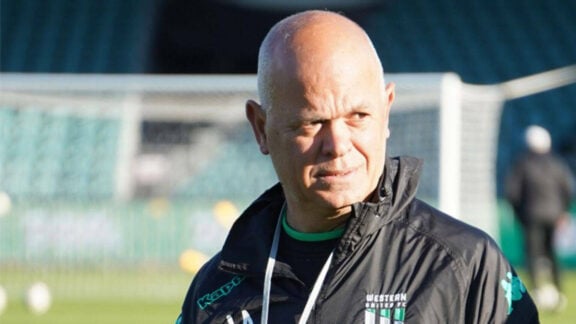Australia and New Zealand are promising to strengthen trade and security ties in an “increasingly fractious and uncertain” world.
Prime Minister Anthony Albanese has crossed the Tasman for annual talks with his Kiwi counterpart.
“In a time of global uncertainty, the certainty and the strength of this bond have never been more important,” Mr Albanese said in Queenstown on Saturday.
Greeting the Australian prime minister with an enthusiastic full-body hug, Christopher Luxon said his nation had “no greater friend than Australia”.
“You are family,” the New Zealand leader said.
“In a time of global uncertainty, the certainty and the strength of this bond have never been more important,” PM Albanese, Queenstown, NZ
“There’s nothing more certain than the bedrock of the relationship that we have between our two great countries.”
It is Mr Albanese’s second time across the Tasman as Australia’s leader, and although he and Mr Luxon represent opposite ends of the political spectrum, both affirmed their nations’ “common outlook and deep trust”.
During an annual leaders’ meeting, the pair discussed defence, the war in Gaza and trade deals amid what they described as “the most unpredictable and dangerous strategic environment in decades”.
Mr Albanese addressed attendees by noting the “uncertain world” the two nations faced with “geopolitical tension, issues with trade and conflict in the world”.
“But there is one thing that is certain and that is that Australia and New Zealand stand together,” he said.
The leaders committed to further advancing the trans-Tasman single economic market, established in 2009 to grow trade and deepen investment links between the two countries, as “an example for the world”.
“At a time when free and fair trade is being questioned, I think it’s really important that we emphasise the opportunity that’s there as well for both of our nations being located as we are,” Mr Albanese said.
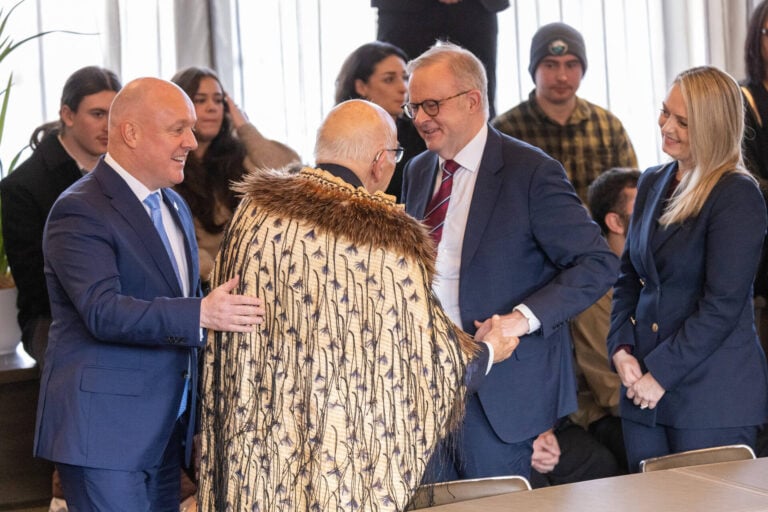
“Just to our north is the fastest-growing region in the world in human history, and that represents opportunity.”
The “complicated” relationship between opportunities and challenges posed by China became a focus of talks behind the scenes
“China is a massive and significant player in the world, and it’s a permanent feature of global affairs,” Mr Albanese told reporters shortly after the closed-door meetings.
“We have an approach which is about co-operating where we can, and we disagree where we must.
“We have different systems, different values … We’ll stand up for those at different times, and we’ll have differences.”
The pair also discussed the impact of U.S. President Donald Trump’s tariffs.
While Mr Trump raised tariffs against dozens of nations, he showed mercy on Australia and kept levies against most products at 10 per cent.
But New Zealand was not spared – hit with a 15 per cent “reciprocal” tariff.
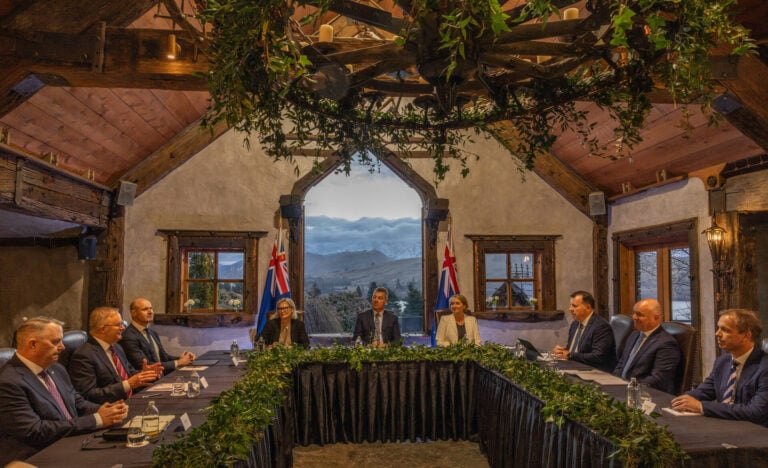
Mr Albanese and Mr Luxon said they stood for “rules-based trade” where businesses could be given certainty and predictability.
The leaders expressed their concern at the recent turbulence in global trade, vowing to cooperate to continue global trade and investment openness.
They also agreed to work together to reform the World Trade Organisation as the foundation and enforcer of global trade rules.
David Capie, from Victoria University of Wellington, said the Luxon government had leaned into its partnership with Australia since coming to power.
“You’ve got a New Zealand government that wants to do more with Australia,” the foreign and defence policy expert told AAP.
“The upending of the economic order with the Trump tariffs, the Middle East – all of those things NZ and Australia are finding that they’re very closely aligned.”
The meeting coincided with the release of a joint statement from the foreign ministers of Australia, New Zealand, Germany, Italy and the United Kingdom, condemning Israel’s plan to intensify the war in Gaza and assume full control of the territory.
In it, the ministers said they “strongly reject” Israel’s decision to launch a large-scale military operation in Gaza and warned that the looming military operation risked violating international law and putting the lives of hostages and civilians in more danger.
Mr Albanese’s two-day trip to New Zealand continues on Sunday.
Source: AAP
